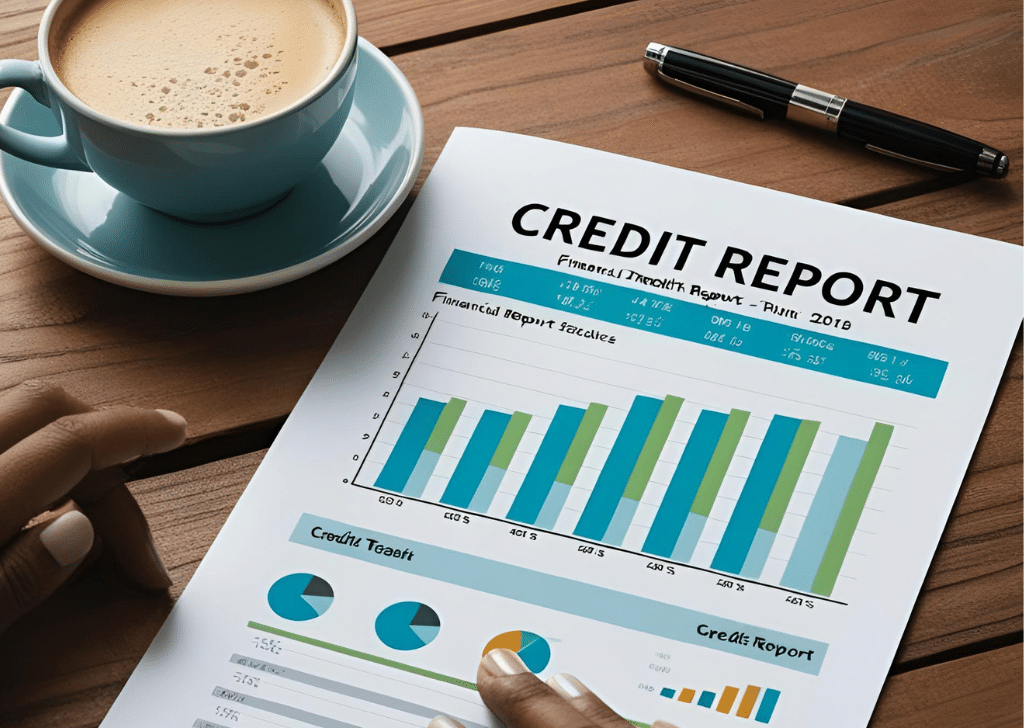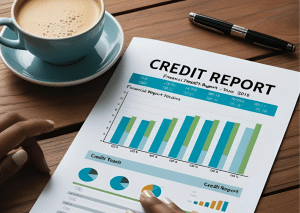How Credit Utilization Impacts Your Credit Score

The amount due as a percentage of the entire credit limit, also known as the debt-to-credit ratio or credit utilization, is a major factor in determining a consumer’s credit score. This ratio accounts for 30% of the FICO score, the credit score that creditors and lenders use the most. Financial experts advise keeping the credit utilization ratio at or below 30% to retain a decent score. You can improve your credit score by paying off revolving debt if your credit use percentage is higher than this. It is crucial to exercise self-control when requesting credit limit increases via your credit card company’s website or mobile app. The bank sometimes grants requests for credit limits right away.
In addition, you can immediately improve your credit score by looking for inaccuracies in your credit report. Consumers can view their credit reports for free once a week thanks to a pilot program that credit bureaus extended last year. Yet many elderly people, particularly those who have paid off their mortgages, don’t check their credit reports. Contact the company that supplied the data and submit a formal dispute to the credit bureaus immediately if you find an inaccuracy in your credit report. To dispute inaccuracies on your credit report, follow the steps provided by the Consumer Financial Protection Bureau (CFPB).
The largest obstacle for customers, though, is that credit bureaus have the authority to reject complaints in the absence of adequate supporting proof. A bank statement demonstrating an on-time payment that was reported as late by a landlord, mortgage company, or other lender could serve as evidence in your dispute. You can add a statement to your credit report explaining the errors to prospective lenders or file a complaint with the CFPB if the credit bureaus still won’t make the changes.
The Importance of Monitoring Your Credit Report for Errors
Your score might be significantly lowered by even minor mistakes. Your credit score may be impacted for up to seven years by late or missed payments that remain on your credit report. Consistently pay no less than the minimum amount by the due date. You may ensure that you never forget a deadline by setting up automated payments and payment reminders in your accounts. Always check that you have sufficient funds in your accounts to pay your payments. Additionally, make sure to update any wrong information on your credit reports by checking them at least once a year.
The Effect of New Credit Applications on Your Credit Score
Your credit score is affected in a few ways when you apply for new credit. Initially, the lender will perform a rigorous inquiry on your credit report before determining whether to cooperate. Your score decreases by a few points as a result. Second, opening a new credit account will result in a modest decrease in the average age of your accounts, which may also result in a lower score. However, it also lowers your credit utilization ratio, which may improve your credit score.
Avoiding applying for credit cards or loans that you don’t believe you’ll be eligible for and applying for new cards no more than once every six months are the keys to making new credit work for you. When it comes to loans, like mortgages, credit scores take into consideration typical credit-shopping behavior by treating any hard inquiries made during 30 days as a single query. Therefore, make sure to submit all of your applications within this time frame.
Strategies to Keep Your Credit Utilization Low
Keeping your credit use ratio low is essential to raising your credit score and establishing your creditworthiness. It is determined by taking the sum of your credit card balances and dividing it by the total of your credit limits. You are more appealing as a borrower and have a better chance of securing advantageous loan terms and interest rates if your ratio is low, which shows that you are not unduly dependent on credit and manage your obligations well. Know the calculation and try to keep your credit utilization ratio below thirty percent to maintain a low credit utilization ratio. To show that you manage your credit responsibly and avoid accruing balances over time, pay off obligations in full each month.
To enhance your overall credit usage ratio and maintain low individual card utilization percentages, spread out your credit utilization across several cards. Keep an eye on your credit utilization regularly to spot possible problems and take preventative measures to keep it low. As long as you avoid increasing your spending, you can reduce your credit use percentage by using credit limit increases selectively. Avoid asking for too many increases in a short amount of time, as this could worry lenders. Reducing the number of new credit applications you submit, keeping your credit accounts open, and making on-time payments are all crucial components of good credit management.
Best Practices for Managing Credit Applications

Keeping track of how many fresh credit applications you submit is crucial for managing your credit. Since these applications suggest a greater reliance on credit and possible financial instability, lenders and credit bureaus view them as a possible risk factor. Having several applications in a short amount of time may indicate that you are more likely to take on more debt than you can manage and raise questions about how you are handling your current credit obligations. Higher interest rates or even credit denial may result from this. When determining your credit score, credit bureaus also take into account how many credit applications you submit because each one results in a lengthy inquiry on your credit report, which can lower your credit score.
Understanding the possible outcomes of each application, making a plan, researching and comparing possibilities, prioritizing quality over quantity, and routinely reviewing your credit report are all important considerations while navigating this area of credit management. You may raise your credit score and keep your credit profile in good shape by paying attention to how many new credit applications you submit and acting on these findings. The secret to future borrowing opportunities and financial security is careful credit management.





